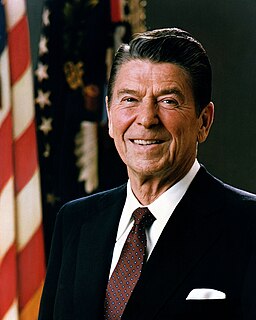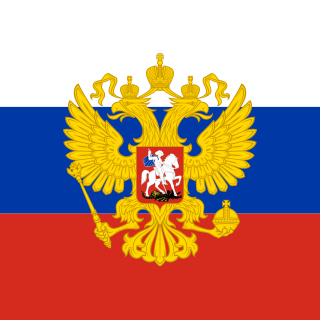This list of presidents of Virginia Commonwealth University includes all presidents of VCU.
| Name | Tenure |
|---|---|
| Warren W. Brandt | 1969–1974 |
| T. Edward Temple | 1975–1977 |
| Edmund F. Ackell | 1978–1990 |
| Eugene P. Trani | 1990–2009 |
| Michael Rao | 2009–Present |
This list of presidents of Virginia Commonwealth University includes all presidents of VCU.
| Name | Tenure |
|---|---|
| Warren W. Brandt | 1969–1974 |
| T. Edward Temple | 1975–1977 |
| Edmund F. Ackell | 1978–1990 |
| Eugene P. Trani | 1990–2009 |
| Michael Rao | 2009–Present |

Dwight David "Ike" Eisenhower was an American military officer and statesman who served as the 34th president of the United States from 1953 to 1961. During World War II, he served as Supreme Commander of the Allied Expeditionary Force in Europe, and achieved the five-star rank of General of the Army. He planned and supervised the invasion of North Africa in Operation Torch in 1942–1943 and the invasion of Normandy (D-Day) from the Western Front in 1944–1945.

George Herbert Walker Bush was an American politician, diplomat, and businessman who served as the 41st president of the United States from 1989 to 1993. A member of the Republican Party, he previously served as the 43rd vice president from 1981 to 1989 under President Ronald Reagan, in the U.S. House of Representatives, as U.S. Ambassador to the United Nations, and as Director of Central Intelligence.

James Earl Carter Jr. is an American former politician who served as the 39th president of the United States from 1977 to 1981. A member of the Democratic Party, he previously served as the 76th governor of Georgia from 1971 to 1975 and as a Georgia state senator from 1963 to 1967. Since leaving office, Carter has remained engaged in political and social projects, receiving the Nobel Peace Prize in 2002 for his humanitarian work.

The president of the United States (POTUS) is the head of state and head of government of the United States of America. The president directs the executive branch of the federal government and is the commander-in-chief of the United States Armed Forces.

Ronald Wilson Reagan was an American politician who served as the 40th president of the United States from 1981 to 1989. A member of the Republican Party from 1962 onward, he also served as the 33rd governor of California from 1967 to 1975 after having a career as a Hollywood actor and union leader.

Richard Milhous Nixon was the 37th president of the United States, serving from 1969 to 1974. A member of the Republican Party, he previously served as a representative and senator from California and was the 36th vice president from 1953 to 1961 under President Dwight D. Eisenhower. His five years in the White House saw reduction of U.S. involvement in the Vietnam War, détente with the Soviet Union and China, the first manned Moon landings, and the establishment of the Environmental Protection Agency and Occupational Safety and Health Administration. Nixon's second term ended early, when he became the only president to resign from office, following the Watergate scandal.

The vice president of the United States (VPOTUS) is the second-highest officer in the executive branch of the U.S. federal government, after the president of the United States, and ranks first in the presidential line of succession. The vice president is also an officer in the legislative branch, as the president of the Senate. In this capacity, the vice president is empowered to preside over Senate deliberations at any time, but may not vote except to cast a tie-breaking vote. The vice president is indirectly elected together with the president to a four-year term of office by the people of the United States through the Electoral College.

2022 (MMXXII) is the current year, and is a common year starting on Saturday of the Gregorian calendar, the 2022nd year of the Common Era (CE) and Anno Domini (AD) designations, the 22nd year of the 3rd millennium and the 21st century, and the 3rd year of the 2020s decade.

Avul Pakir Jainulabdeen Abdul Kalam was an Indian aerospace scientist and statesman who served as the 11th President of India from 2002 to 2007. He was born and raised in Rameswaram, Tamil Nadu and studied physics and aerospace engineering. He spent the next four decades as a scientist and science administrator, mainly at the Defence Research and Development Organisation (DRDO) and Indian Space Research Organisation (ISRO) and was intimately involved in India's civilian space programme and military missile development efforts. He thus came to be known as the Missile Man of India for his work on the development of ballistic missile and launch vehicle technology. He also played a pivotal organisational, technical, and political role in India's Pokhran-II nuclear tests in 1998, the first since the original nuclear test by India in 1974.

The president of India is the head of state of the Republic of India. The president is the nominal head of the executive, the first citizen of the country, as well as the commander-in-chief of the Indian Armed Forces. Droupadi Murmu is the 15th and current president, having taken office from 25 July 2022.

Joseph Robinette Biden Jr. is an American politician who is the 46th and current president of the United States. A member of the Democratic Party, he previously served as the 47th vice president from 2009 to 2017 under President Barack Obama and represented Delaware in the United States Senate from 1973 to 2009.

The federal government of the United States is the national government of the United States, a federal republic located primarily in North America, composed of 50 states, a city within a federal district, five major self-governing territories and several island possessions. The federal government, sometimes simply referred to as Washington, is composed of three distinct branches: legislative, executive, and judicial, whose powers are vested by the U.S. Constitution in the Congress, the president and the federal courts, respectively. The powers and duties of these branches are further defined by acts of Congress, including the creation of executive departments and courts inferior to the Supreme Court.

The president of the Russian Federation is the supreme head of state of the Russian Federation, as well as the commander-in-chief of the Russian Armed Forces. It is the highest office in Russia.

George Walker Bush is an American politician who served as the 43rd president of the United States from 2001 to 2009. A member of the Republican Party, Bush family, and son of the 41st president George H. W. Bush, he previously served as the 46th governor of Texas from 1995 to 2000.

Gerald Rudolph Ford Jr. was an American politician who served as the 38th president of the United States from 1974 to 1977. He was the only president never to have been elected to the office of president or vice president. He previously served as the leader of the Republican Party in the House of Representatives, and was appointed to be the 40th vice president in 1973. When President Richard Nixon resigned in 1974, Ford succeeded to the presidency, but was defeated for election to a full term in 1976.

John Fitzgerald Kennedy, often referred to by his initials JFK and the nickname Jack, was an American politician who served as the 35th president of the United States from 1961 until his assassination near the end of his third year in office. Kennedy was the youngest person to assume the presidency by election. He was also the youngest president at the end of his tenure. Kennedy served at the height of the Cold War, and the majority of his work as president concerned relations with the Soviet Union and Cuba. A Democrat, he represented Massachusetts in both houses of the U.S. Congress prior to his presidency.
A president is a leader of an organization, company, community, club, trade union, university or other group. The relationship between a president and a chief executive officer varies, depending on the structure of the specific organization. In a similar vein to a chief operating officer, the title of corporate president as a separate position is also loosely defined; the president is usually the legally recognized highest rank of corporate officer, ranking above the various vice presidents, but on its own generally considered subordinate, in practice, to the CEO. The powers of a president vary widely across organizations and such powers come from specific authorization in the bylaws like Robert's Rules of Order.

Volodymyr Oleksandrovych Zelenskyy, also transliterated as Zelensky or Zelenskiy, is a Ukrainian politician and former comedian and actor who has served as the sixth and current president of Ukraine since 2019.

The 2024 United States presidential election will be the 60th quadrennial presidential election, scheduled for Tuesday, November 5, 2024. It will be the first presidential election after electoral votes are redistributed according to the post-2020 census reapportionment. Incumbent president Joe Biden stated in January 2022 his intent to run for reelection to a second term, with Vice President Kamala Harris as his running mate. However, as of October 2022 Biden has not committed to a reelection campaign. Former President Donald Trump suggested in March 2022 that he intends to run for president for a nonconsecutive second term, and his running mate may not be Mike Pence.